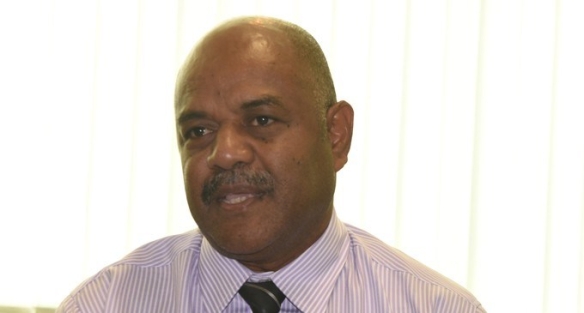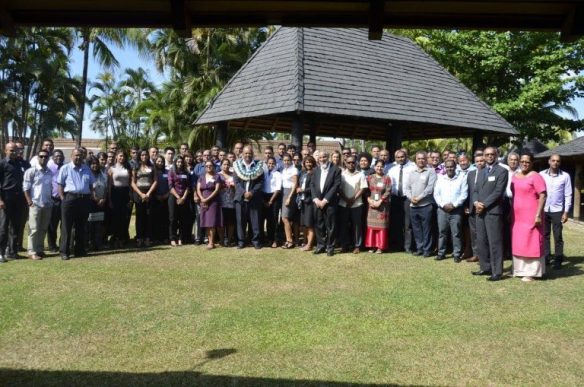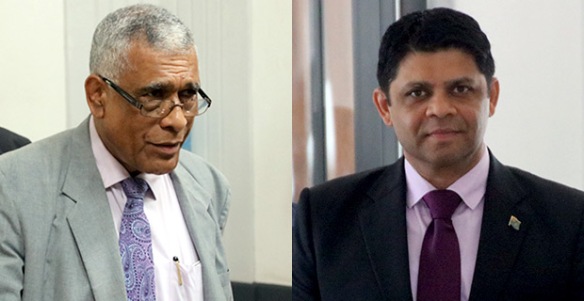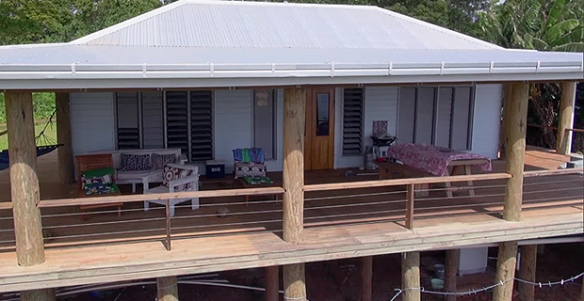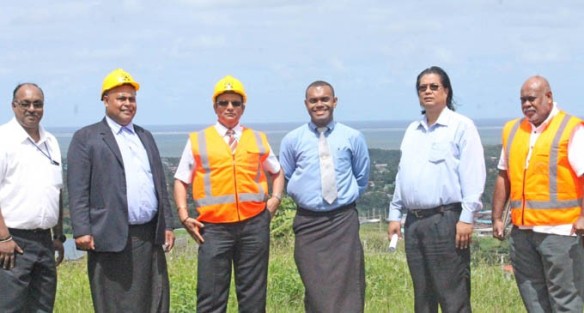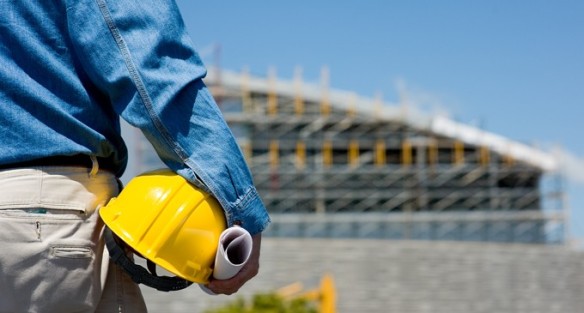
There is excitement in the air in the west because there is so much activity in the building and construction industry and the demand for workers is huge.
This activity is generated basically by tourism industry related construction, reservation and development projects.
Almost anyone who wants a job can get a job and contractors are scouring the bushes for more men.
As a consequence of this activity the average wage has gone up considerably and there are stories of builders and contractors who are working on projects in the outer islands roaming around mainland building sites and offering really interesting deals for anyone who is prepared to move offshore.
There are a lot of takers as the benefits, such as free accommodation and meals, add to the value of the deal.
The mainland contractors are retaliating with some degree of success.
Availability of construction equipment
Another issue is the availability of construction equipment.
There is such a dearth of equipment that even machines, like excavators, which were abandoned as not worth repairing a year ago, are suddenly with mechanics and on offer for sale or lease.
No matter what the age, these are being snapped up simply because there are no other options.
A number of people are buying second hand equipment out of Australia and New Zealand and shipping it in on pre-sale orders.
Operators for this equipment remain a real issue and in a number of cases executives have been dragged into operating on site.
Another issue that has not yet hit the building industry but will become a problem as more projects come on line and the demand for things on short notice grows rapidly will be shortages.
Already, there are delays with some lines that are imported from offshore but there are currently alternatives available.
Many of the prices have risen on the growth in demand and contractors who have signed fixed rate contracts are now concerned about the viability of the work they need to do.
There are also a number of people who are placing orders now for future delivery dates and so far most suppliers are accepting these, but there is doubt in the industry that these suppliers will honour the agreement and deliver on due date.
There is no legal reason why they need to do so, as a local purchase order is not a contract and it will be hard for the suppliers to resist the temptation to sell when it arrives, especially as the price will in many cases, be higher than that on the LPO.
A number of large contractors are also buying and importing from overseas, or considering doing so. In the long term this is not good for the local economy, but may well be necessary.
Already there is evidence of contractors who are supplying fill to civil sites diverting deliveries to other sites with a later contract at a higher price, creating issues for the developers.
Shortage of cement
The cement shortage the country experienced a short time ago has focussed the attention of the construction industry on the difficulties they will start to face in the near future as the demand outpaces the demand and projects, or at last certain sections of projects are delayed while the contractor sources material.
It also had the effect of showing contractors that they did not necessarily need to rely on the local building supply retailers but that it was simply to source from overseas, particularly for common items.
Many builders have been sourcing a range of products from offshore suppliers over the last several years and China has particularly developed good business out of the Fijian market.
The large operators, led by the giant on-line supplier Alibaba, have educated Fijian customers and the business of importing hardware and other material has become very simple and easy.
There is a lot of interchange of information amongst builders and contractors in Fiji and the idea is spreading that importing is a viable option. Fijian builders have also travelled overseas for holidays and have seen the way hardware retailers in Australia, New Zealand and the USA operate and the vast range of products they have in stock.
They see the prices are not only competitive but that companies such as Bunnings, Home Depot and others are well set up to service their orders.
The issue that holds Fijian builders back from using these suppliers is that they are generally only looking for a small volume of each item and the cost of freight and the associated costs of import services make the end price unattractive.
Ideally, local companies could join together as a buying group, but this would be cumbersome and take a lot of effort to control, so for the immediate future they need to find ways to work around shortages without losing too much production time.
The local hardware groups have recognised the issue and are trying to put answers in place, but the relatively small size of the market makes holding wide inventories uneconomical and makes the need to import a significant volume of items a necessity.
And the builders and contractors will continue to be creative in the way they get around the lack of specific items, usually by substituting.
One thing is for sure, the construction industry will continue to grow at a fast rate and shortages will be a part of life.
For the tourism industry, the biggest sector involved in the current construction boom, it is something that needs to be watched closely.
It is also certain that offshore hardware retailers are looking at Fiji with a lot of interest considering the fast growth over the last year or so.
Credit: John Ross, 16 September, 2017.


